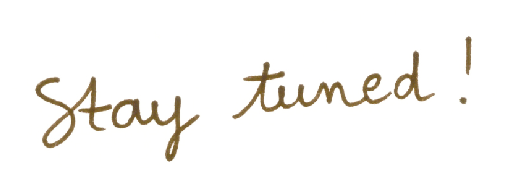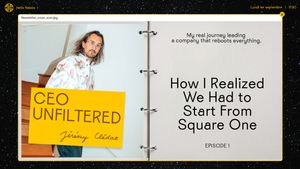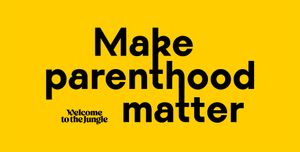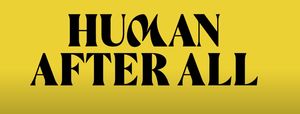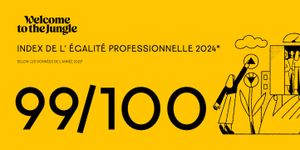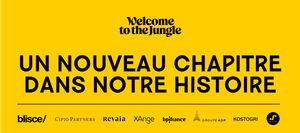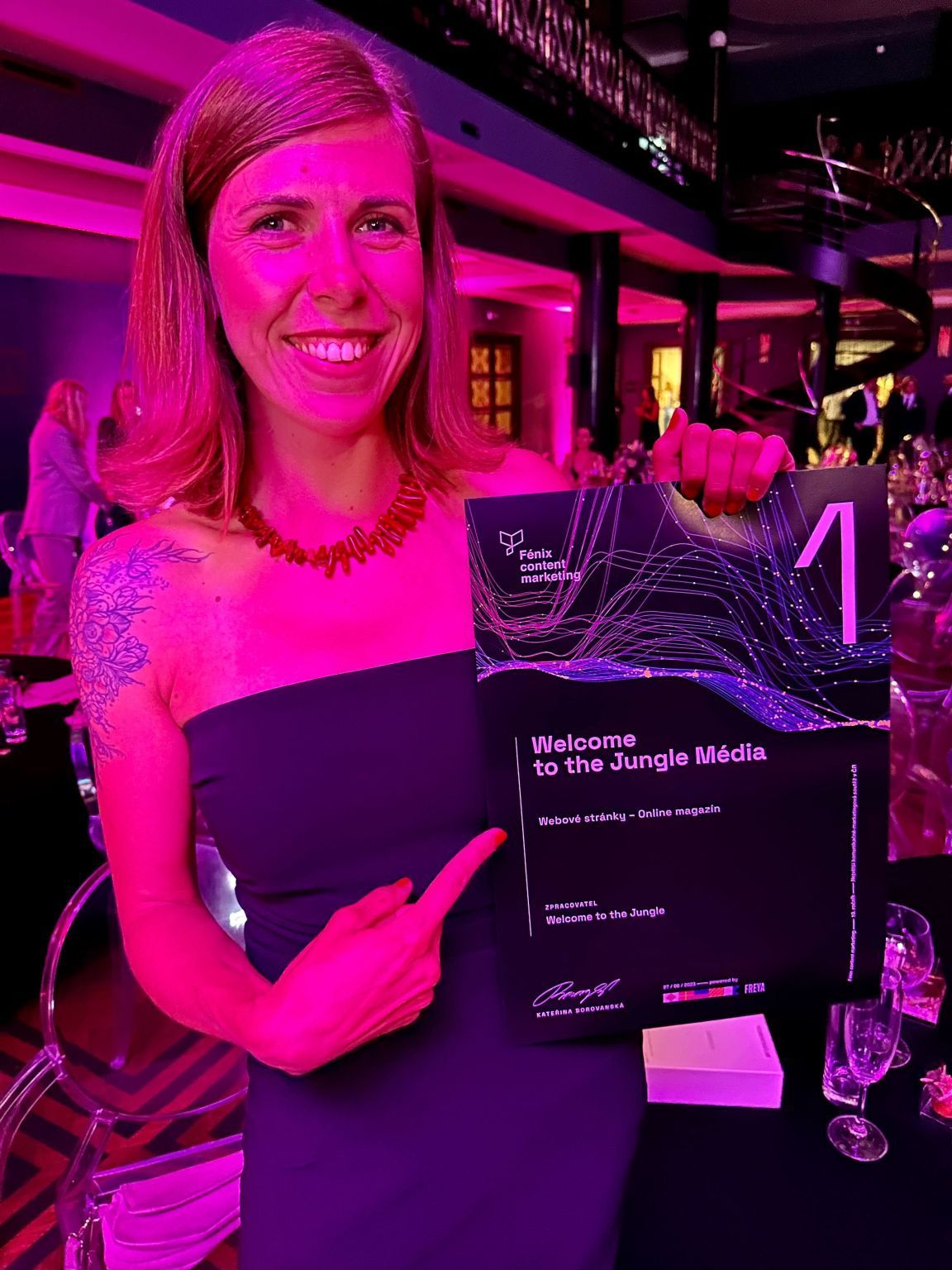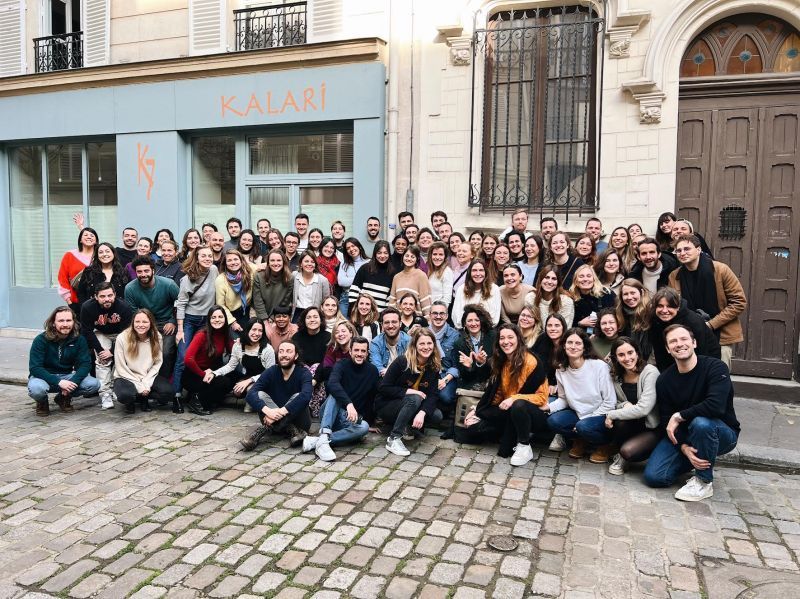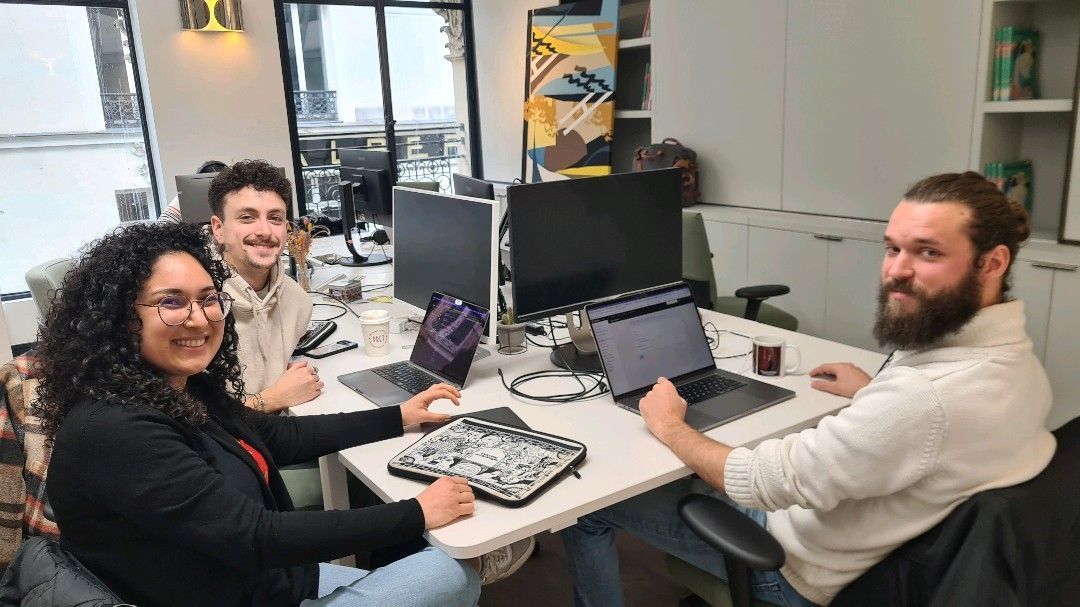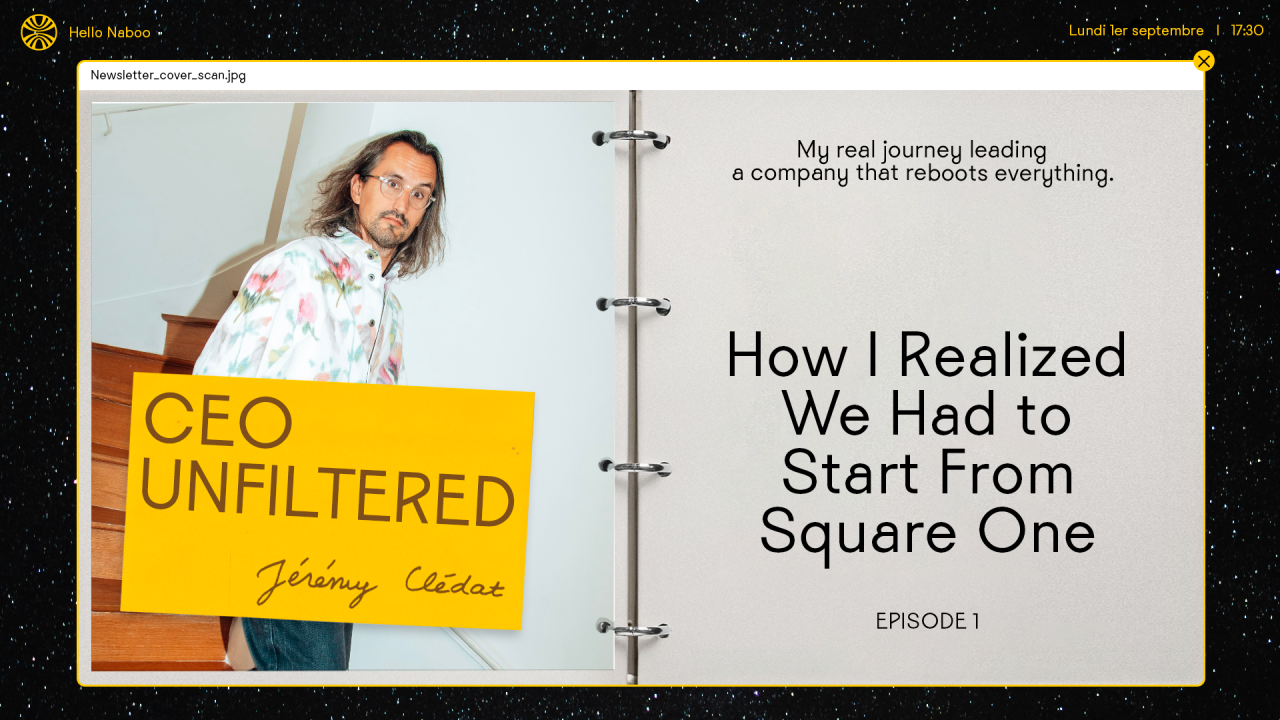Earlier this year, the company I founded celebrated its 10 years of existence. It was really an incredible feeling to see that Welcome to the Jungle could last a decade, and hopefully much more.
It all started as an idea—a quiet one. Far from the loudness of some startups that want to “change the world”. With Bertrand, my partner and best friend, we just wanted to do our own thing, something that we irrevocably believed in. We wanted to create something unique without playing by the rules, and we did succeed in doing so.
Work takes a central place in our lives, and dedicating our time to make it better just felt right. So it all began with an observation: the hiring system was insane. It expected you to play a role, to act like someone else. On both sides. We wanted to create a place where companies could finally show themselves—raw, real, imperfect, and human. We built a space where companies could tell their stories. Show their people. Reveal their culture. And where candidates could find them.
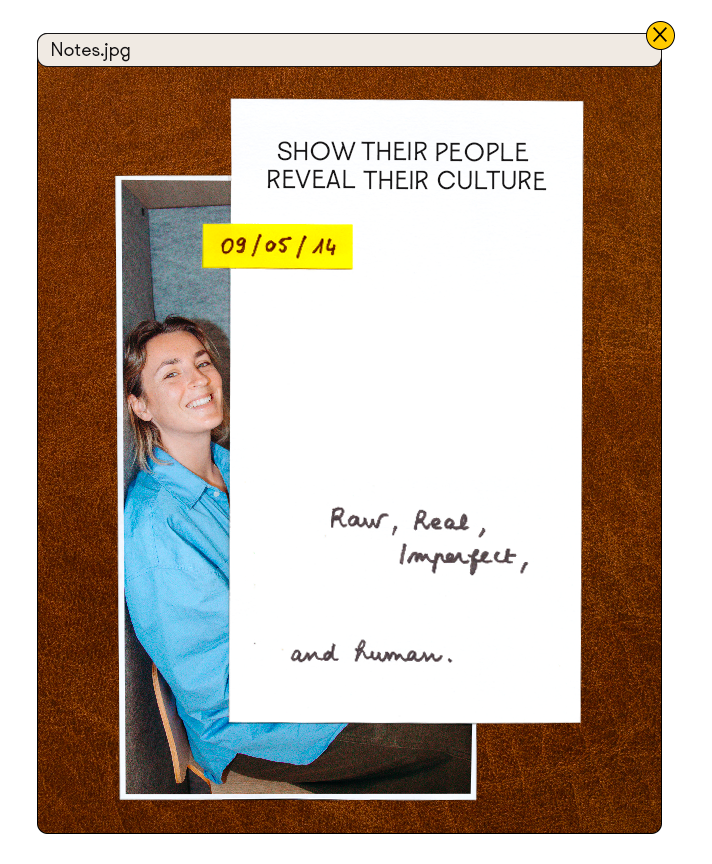
When you start something new, a lot of people will tell you what to do, and how you should do it. Especially in the tech industry, there are always playbooks to follow and experts for everything. We resisted this standardization and tried something of our own, starting with our name.
We took a name that was “too long,” not “straightforward,” not SEO-compatible. Too weird for clients, probably not corporate enough. After all, there are always good reasons not to try something new. But today, Welcome to the Jungle is one of the most memorable brands in the recruiting industry.
Same for our strategy at the time. We started doing photos and video shootings at companies’ offices and we invested strongly in content. We built a team of journalists and filmmakers to make the best content ever, something that never happened in a tech company before. We reinvented what a “brand media” is and it became the beating heart of the company. Sometimes you just need to listen to your guts… Like our web series “Bertrand recrute”, which was a crazy idea at the time. Bertrand, my cofounder, was doing mock job interviews with French celebrities and definitely some colorful language. It ended up getting 16 million views on social media.
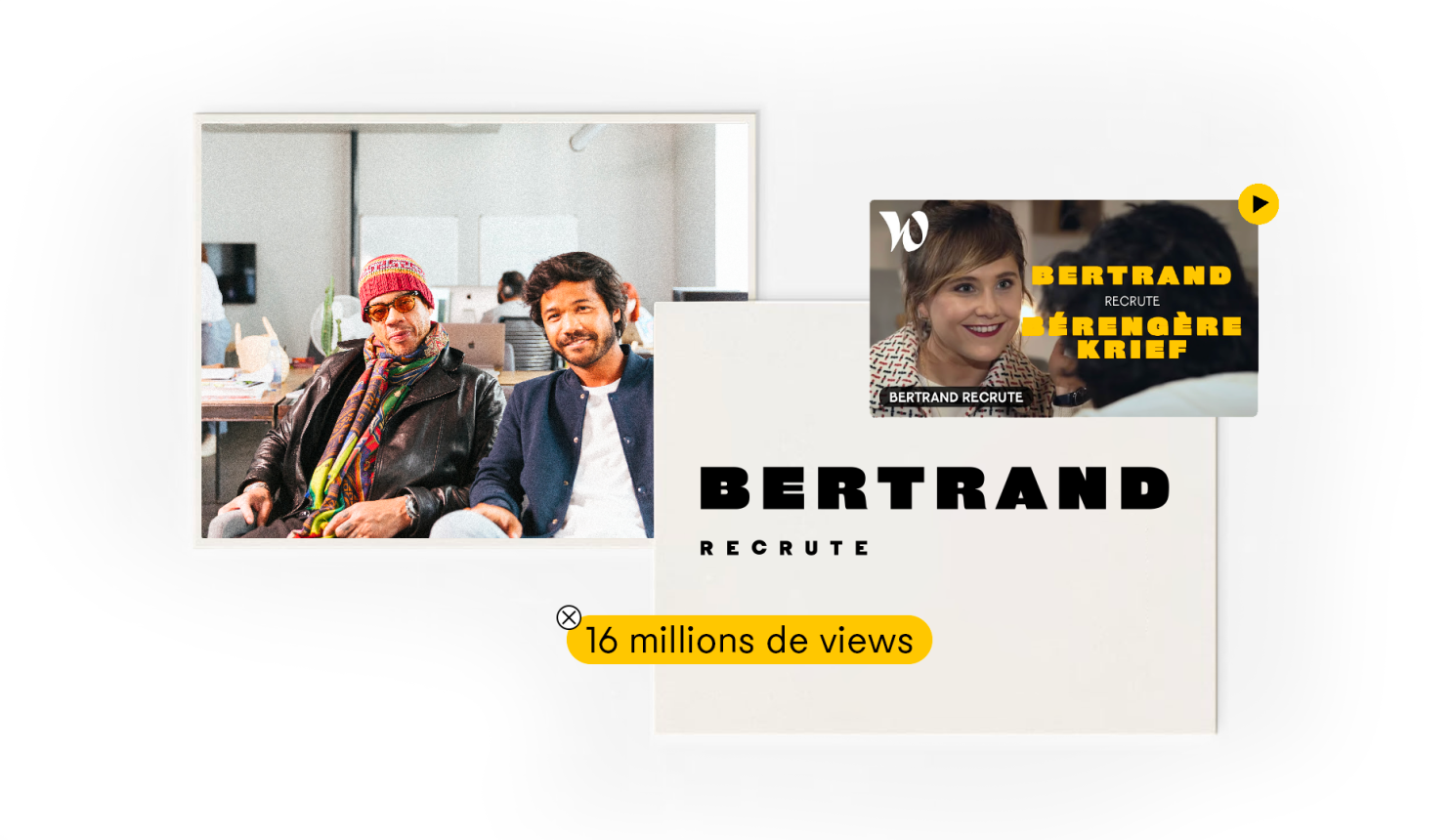
In a world of sameness, we succeeded in providing the unexpected. That made Welcome to the Jungle a unique project to work for and to believe in. Ten years later, things changed.
When culture changes course
I love reading “fresh eyes reports”, feedback from newcomers after a few weeks at the company. It’s always the opportunity to get some non-biased perspective on your company and how it’s managed. Late 2024, someone who recently joined told me: “I just left a 3.000 people company to join a 300 people one, but it feels like it’s even more complicated”. That hit me hard, and the problem was shared loud and clear
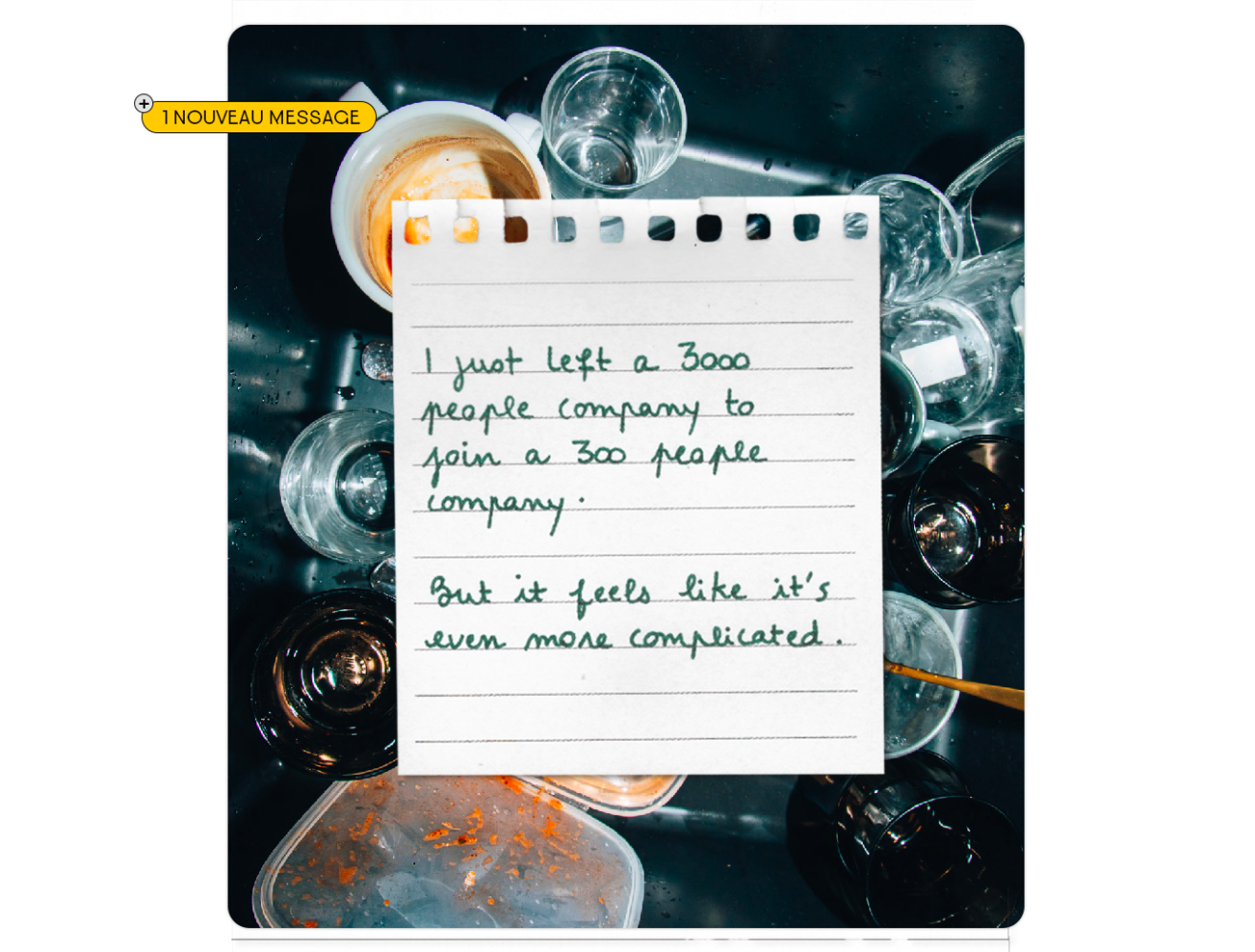
In a world that goes faster and faster, inertia is the ultimate company downfall. It can take many forms, from leadership’s refusal to change strategy, underinvestment in technology and innovation, or the inability to see what’s coming. We were starting to have all those problems. We had too many processes (often for the sake of having some), complex decision making with too many people involved, too many presentations, and, frankly, an overly centralized leadership team that was out of touch with reality. Simplicity was a thing of the past and velocity was non-existent. More importantly, the pleasure of doing and building great things was going away.
It started to feel like we needed more than some adjustments.
Why does your company exist?
It felt strange to start losing our focus and the “why” Welcome to the Jungle exists. We didn’t take the easy path building the company. We invented our own internal model (starting with the 4 day workweek in 2019, already 6 years ago!) and our own path to success. I thought we would always stay on course. Yet, another strange change happened: instead of focusing on what matters (our products, our clients, our culture), we started focusing on the “how” and on measuring.
This is a pattern known by many companies that experienced high growth and an inflow of venture money. High growth means that every 6 months, you need to reinvent your operating system and your ways of working. You start hiring a lot, and you’re asked to bring more experienced people on to do it. Processes are needed (which is absolutely fine, even necessary), but it quickly looks like you opened a Pandora box. It’s like legislative inflation: if you don’t pay attention, you get eaten by it and the real problems kick in.
Curiously enough, we mentioned all of this in one of Welcome to the Jungle’s videos in December 2024. That should have been a good hint… Albert Moukheiber talked about the sacralization of KPIs and the inevitability of Goodhart’s law: “when a measure becomes a target, it ceases to be a good measure”. There is nothing wrong in measuring results or the outcome of what you’re building; the problem is when monitoring indicators begins to be the outcome. A great example is the so-called customer centricity that every company advocates for, and its main KPI: Net Promoter Score. What happened is that we spent 2 years perfecting the metric and how we were collecting feedback, instead of just answering our clients’ needs. One would react and say “that’s just common sense”, and they would be right. I have so many examples like this one, that made us lose track of what really mattered.
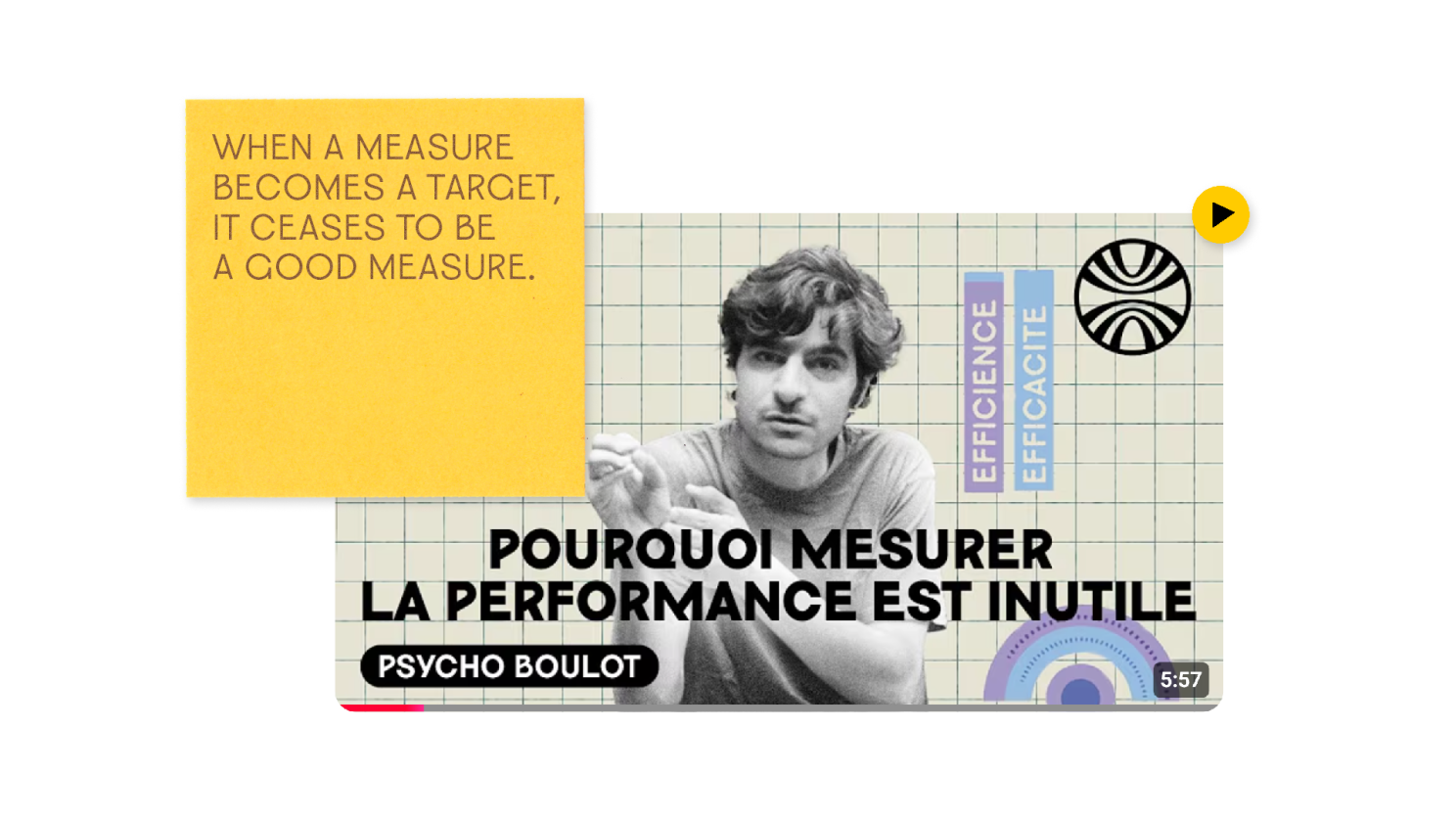
The same happened with competition. We never compared Welcome to the Jungle to any other recruiting platforms, and all of a sudden we were getting obsessed by our competitors. We tried their own playbooks, instead of following ours. Benchmarking is great; mimicking is bound to fail. Because when you start doing like the others, the reason for your company to exist in its market starts to slowly fade away.
And then AI came along
When your mind is focused on the wrong topics, you can easily miss what’s really important. Two years ago, we started paying attention to AI for content production. It definitely helped us for photo and video post production, but we didn’t anticipate the real changes that were happening.
Until the beginning of this year, at Welcome to the Jungle, AI was globally considered a feature and “something we should think about”. That was a critical mistake, one that I’m glad we are repairing now.
It takes me back to 2007 and the iPhone launch. Do you remember the shift from desktop to mobile? Some companies didn’t “buy the trend” and didn’t commit fully to the change. They added some “responsive design” to their website and called it a day. Others rebuilt from the ground up to deliver a true experience and harness the potential of this new technology. But the smartest ones really understood the profound shift in user experience it implied, and iconic businesses like Uber and Spotify were born.
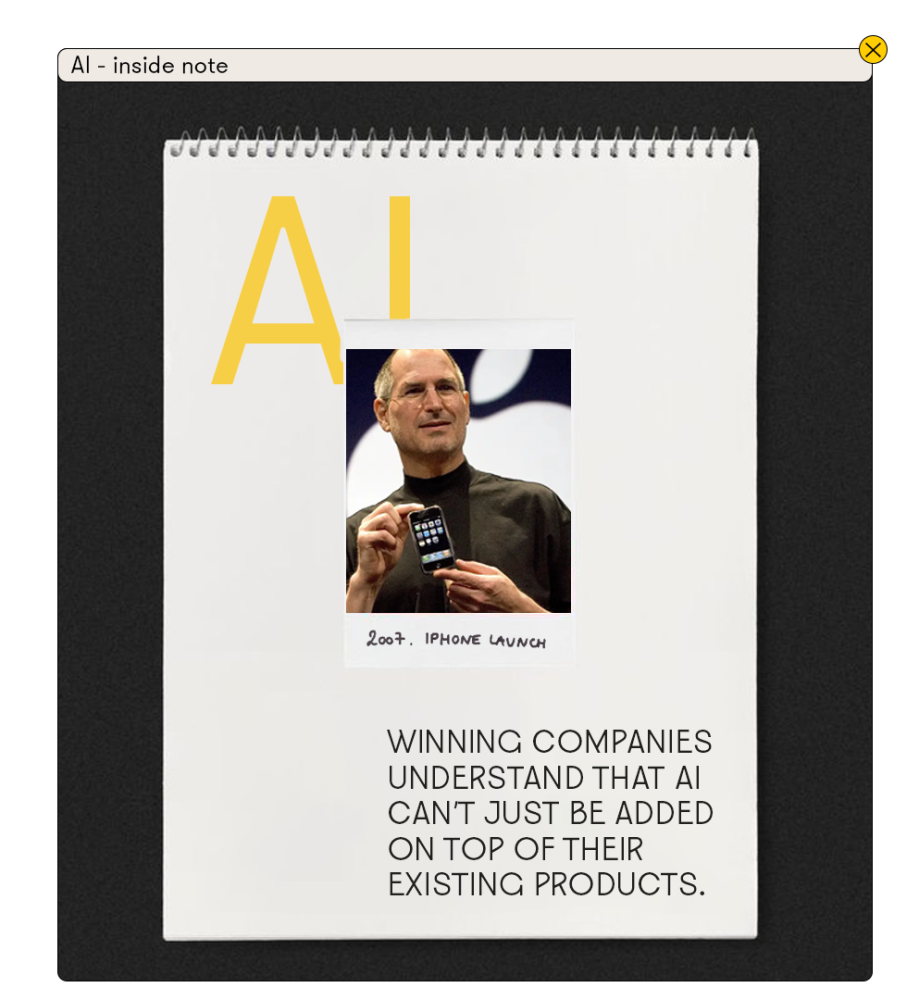
I believe the same is happening with AI today. Winning companies understand that AI can’t just be added on top of their existing products. They understand they can no longer work as usual, because the pace of innovation just changed overnight.
Starting 2025, reality came knocking at my door. We were not part of the winning crew.
The times they are a-changing
When everything is dramatically changing, is it time to patch or to rebuild completely?
When things get tough, it’s hard to know if it’s time to readjust or completely change course. Sometimes, it’s about survival and incremental adjustments are not enough. It’s a really tough call for a leader to decide which situation it is, because a mistake can be fatal. I had the chance to discuss this with many other founders and CEOs. There is no magical way to be accurate, and no way to know for sure if you will make the right decision. The only sure thing is that you need to take one.
In Welcome to the Jungle’s case, I decided we needed radical reinvention. We needed a profound change of course, to face existential market disruption and reignite our innovation.
In March, we started to question everything. We examined the company from all angles. It led to uncomfortable discussions and leadership departures. But in the end we had one goal: giving us the invaluable opportunity to start a new chapter for Welcome to the Jungle.
Our Season 2 officially started in June 2025. With a fresh leadership, a new product roadmap that I feel exceptionally excited about, and a brand strategy that will make us pioneers again
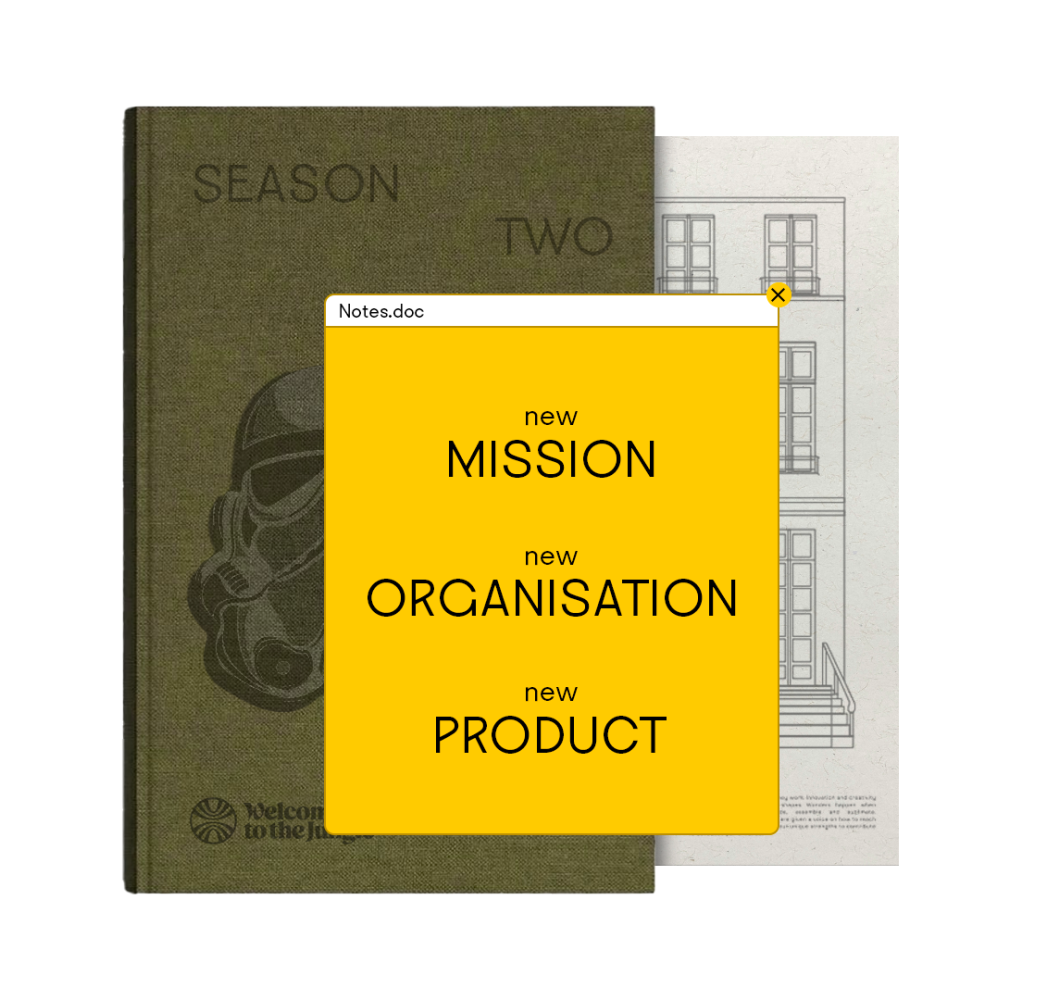
That’s the journey I’ll be happy to share here. We are not the only ones undergoing such a reboot, and probably other companies will do it in the future. Other founders or CEOs will ask themselves the question: is this what we need? I hope sharing our story will give some clues.
Next time, we’ll talk about AI and how to get back on the winning team.
